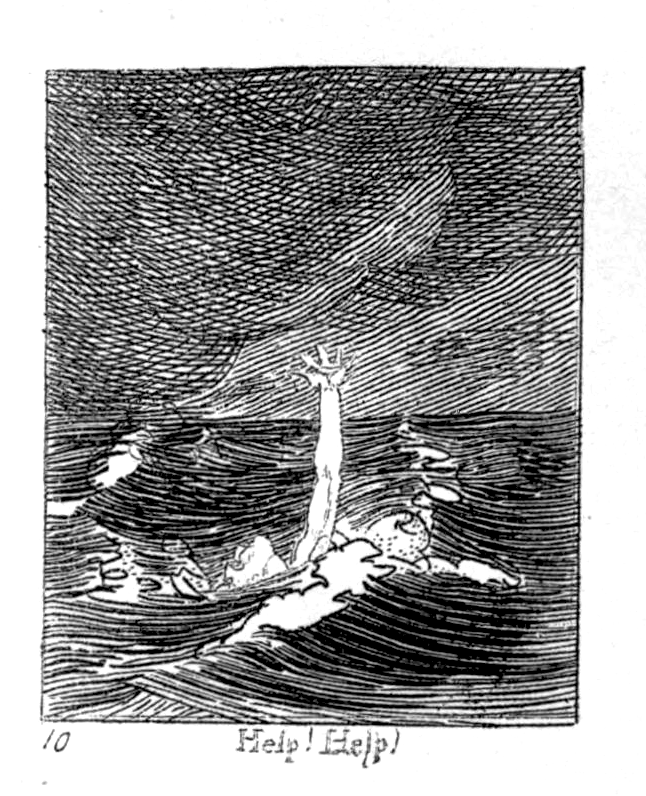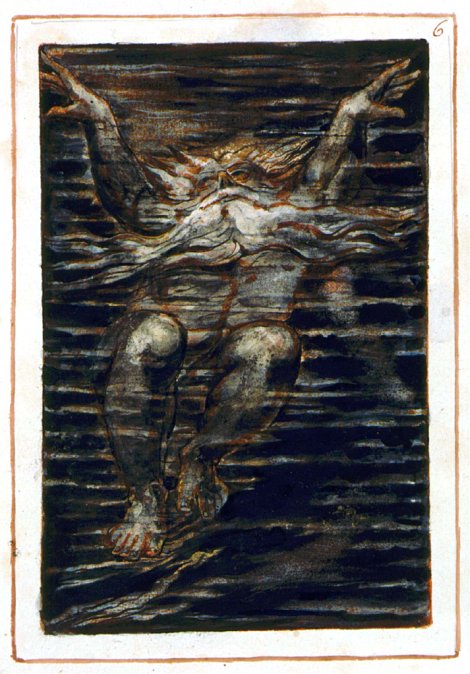Pickering Manuscript, William Bond, (E 497)
"I thought Love livd in the hot sun Shine
But O he lives in the Moony light
I thought to find Love in the heat of day
But sweet Love is the Comforter of Night
Seek Love in the Pity of others Woe
In the gentle relief of anothers care
In the darkness of night & the winters snow
In the naked & outcast Seek Love there"
The journey from innocence to experience draws us from the unadulterated light into the shadows or darkness. Blake wrote The Book of Thel from the perspective of an innocent who looked ahead to the journey of acquiring experience and declined to take the next step.
Thel, PLATE 1, (E 3)
"The daughters of Mne Seraphim led round their sunny flocks.
All but the youngest; she in paleness sought the secret air.
To fade away like morning beauty from her mortal day:
Down by the river of Adona her soft voice is heard:
And thus her gentle lamentation falls like morning dew.
O life of this our spring! why fades the lotus of the water?
Why fade these children of the spring? born but to smile & fall.
Ah! Thel is like a watry bow. and like a parting cloud.
Like a reflection in a glass. like shadows in the water.
Like dreams of infants. like a smile upon an infants face,
Like the doves voice, like transient day, like music in the air;
Ah! gentle may I lay me down, and gentle rest my head.
And gentle sleep the sleep of death. and gentle hear the voice
Of him that walketh in the garden in the evening time."
 To experience life implies becoming acquainted with death; entering the field of time inevitably exposes one to the experience of change; pain is introduced as a pedagogue to guide development. Thel avoided these threatening things by remaining in a state of innocence instead of transitioning into an adult who knew from experience the meaning of sacrifice, brotherhood, redemption and compassion. Blake proposes that participating in the experience of division, and living in an imperfect world is the way to completeness, to the realization of the infinite and to Eternity. Thel choose the 'sleep of death' rather than the sleep of life.
To experience life implies becoming acquainted with death; entering the field of time inevitably exposes one to the experience of change; pain is introduced as a pedagogue to guide development. Thel avoided these threatening things by remaining in a state of innocence instead of transitioning into an adult who knew from experience the meaning of sacrifice, brotherhood, redemption and compassion. Blake proposes that participating in the experience of division, and living in an imperfect world is the way to completeness, to the realization of the infinite and to Eternity. Thel choose the 'sleep of death' rather than the sleep of life.____________________________ Picture from Song of Los, Plate 6
.
















